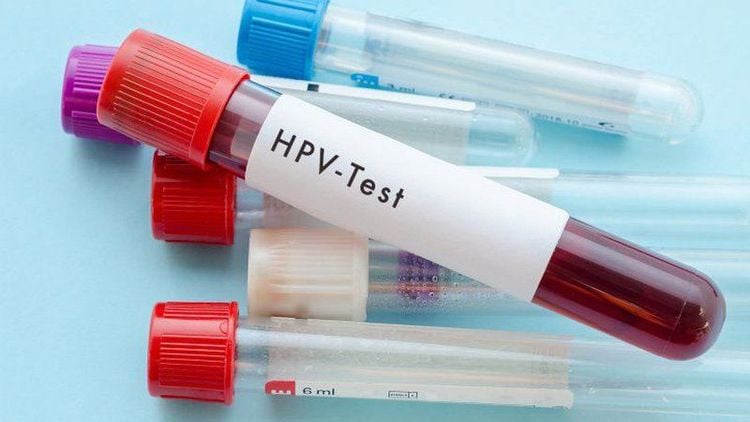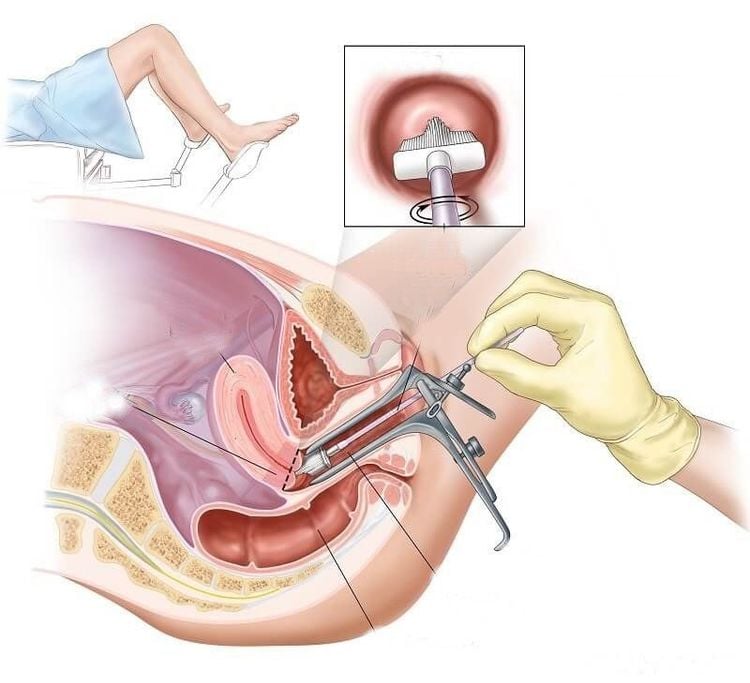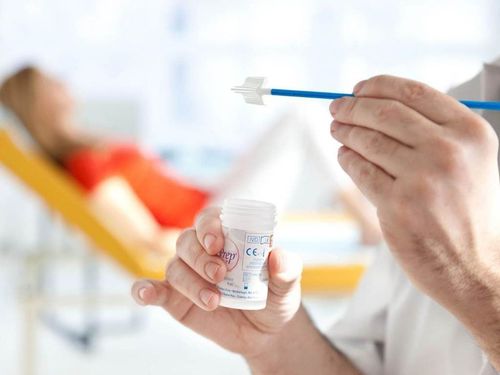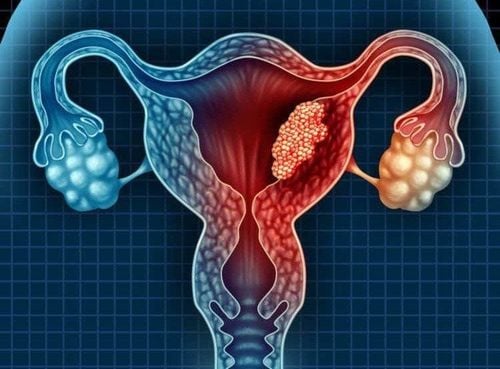This is an automatically translated article.
The article was professionally consulted with Specialist Doctor I Le Khac Hieu - Obstetrician and Gynecologist - Department of Obstetrics and Gynecology - Vinmec Ha Long International General Hospital.Women entering menopause often face many health problems, including cervical cancer. It is one of the cancers with a high mortality rate in women. To prevent and detect cancer early, doctors often recommend that women between the ages of 21 and 65 have a Pap test.
1. What is a Pap test?
The Pap test, also known as the Pap smear, was invented by a famous Greek doctor - Georgios Nikolaou Papanikolaou. This is a test that looks for abnormal changes in cervical cells that indicate signs of cervical cancer, or conditions for developing cancer.The best time to have a Pap test is 21 years old, but doctors usually recommend that women between the ages of 21 and 65 have a Pap test every three years. Alternatively, you might also consider having a Pap smear combined with an HPV (human papillomavirus) test about every 5 years after age 30.
It can be said that the Pap test is the best tool to help women detect precancerous conditions of the cervix early, so that they can have timely treatment and achieve a high success rate when curing. .

2. Should a Pap test be done after menopause?
Even if you're in menopause, or after menopause, you should continue to have Pap tests.For women who have undergone a total hysterectomy with a benign tumor, or no history of abnormal Pap tests, Pap screening may be discontinued. It also depends largely on the medical history and risk of HPV infection in postmenopausal women.
Pap screening can be stopped at age 65 or 70 if you've had at least three normal Pap tests in a row and no abnormal Pap tests within the previous 10 years.
3. How often should a menopausal woman have a Pap test?
Menopausal women can have a Pap test every three years if they have the following conditions:Have had normal Pap test results for three consecutive years No history of pre-Pap test results cancer Do not have HIV Immune system is not weakened Have never used Diethylstilbestrol (DES), a non-steroidal estrogen medicine. Women are at a higher risk of cancer than other people. Therefore, they need to have regular Pap tests to prevent and detect cancer early.

4. What Symptoms Should Be Watched During Pap Smears
Usually, cervical precancerous conditions rarely have specific signs or symptoms. To detect abnormalities in the cervix, women need to have a pelvic exam and Pap smear.When cancer has actually appeared in the cervix, the most typical symptom is abnormal vaginal bleeding. It can start and stop in between periods, or happen during sex or douching.
Another common symptom of cervical cancer is abnormal vaginal discharge. When these symptoms appear, it is best to see your doctor for a diagnosis as soon as possible.

5. Pap test procedure
5.1 Before having a Pap test
Before having a Pap smear, the following should be observed:Do not have sex, and avoid douching or using spermicides, vaginal suppositories, or intra-vaginal creams. 2 days before the test. Pap tests should not be done during menstruation. To ensure the most accurate results, you should have your Pap smear done in the middle of your menstrual cycle. You should urinate before the test begins, as a full bladder can cause discomfort during the Pap test.
5.2 While performing a Pap test
During a Pap test, your doctor will insert a speculum into your vagina to get a better look at your uterus. Then, cervical cells will be removed and taken to a laboratory for examination under a microscope.Usually, patients get results within a week of having a Pap test.

5.3 After having a Pap test
Some people feel uncomfortable having a Pap smear, but the test is usually painless.In certain cases, the sample may be unsatisfactory and the patient needs to have the test again. This may be because the removed cervical cells are clouded by mucus or blood, making it difficult to analyze the cells.
Please dial HOTLINE for more information or register for an appointment HERE. Download MyVinmec app to make appointments faster and to manage your bookings easily.
Reference source: webmd.com













